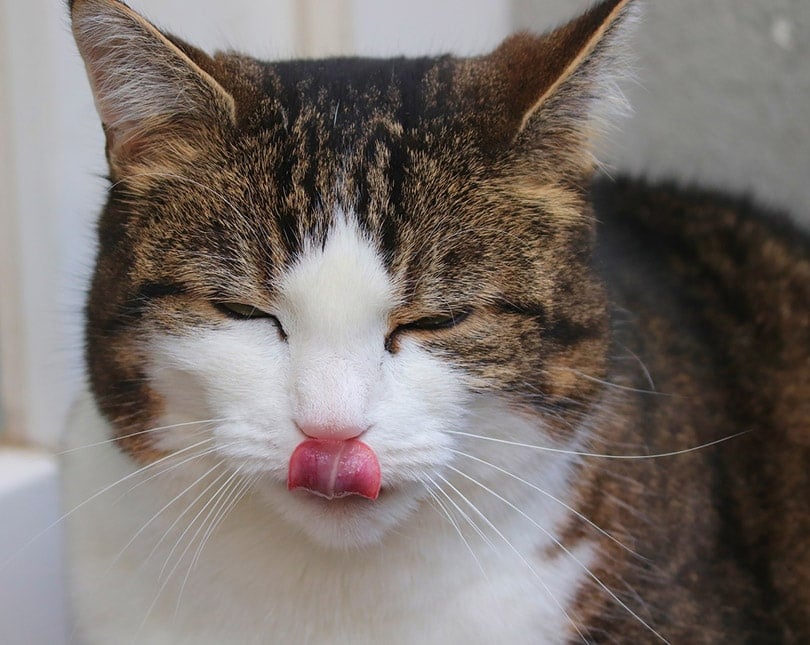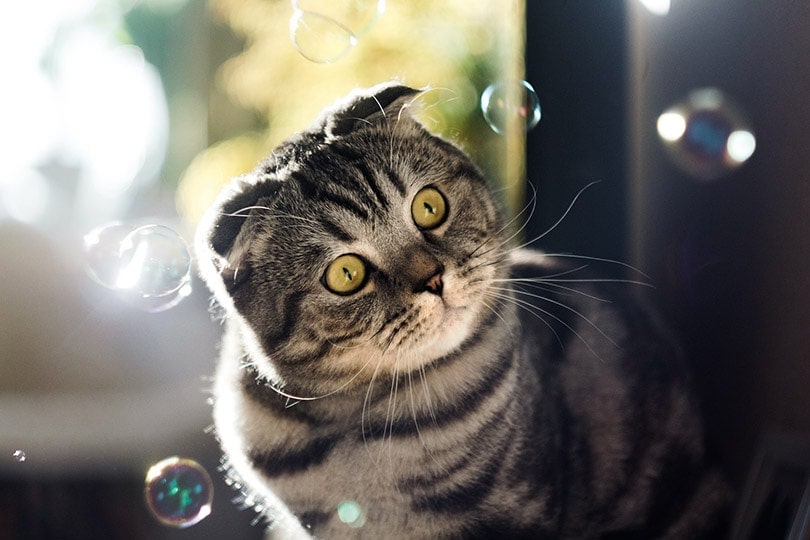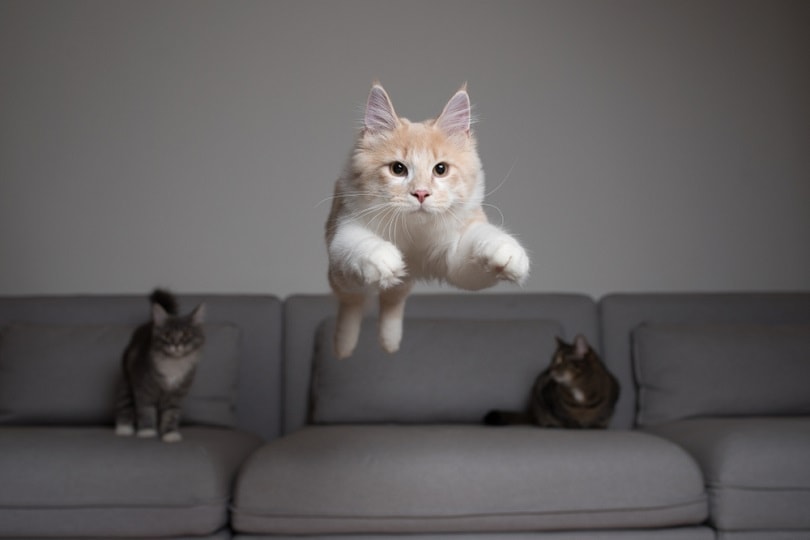Do Cats Know When They Are Dying? 5 Vet-Reviewed Signs & Comfort Tips

Updated on
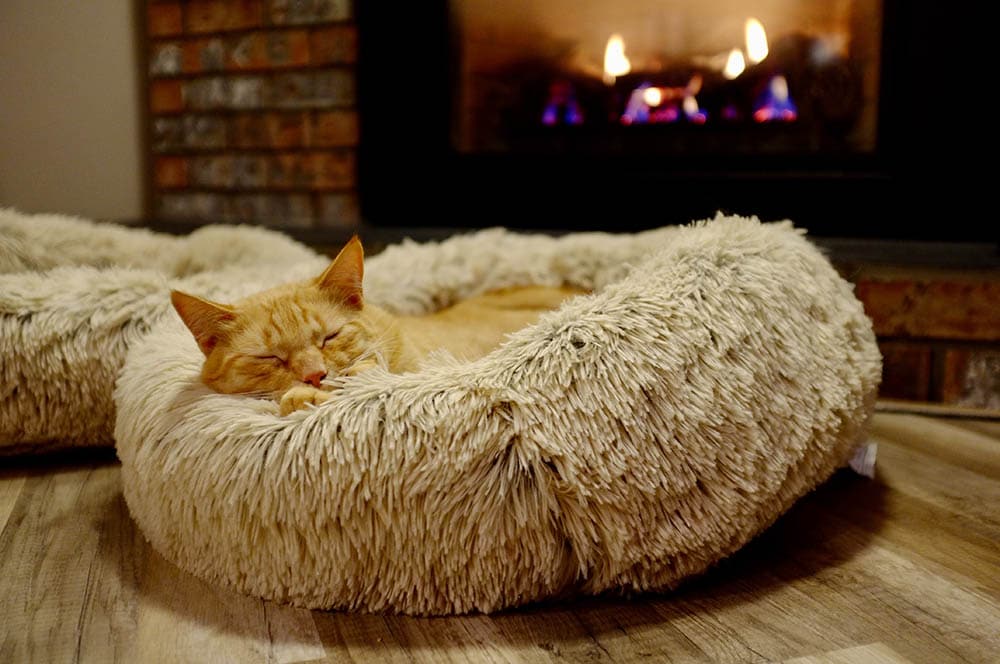
You may have heard that cats instinctively know when they are about to die. To some extent, this is probably true. After all, cats are notably intuitive animals that are extremely sensitive to small changes in their environments and their bodies. In fact, some anecdotal stories claim that cats may be able to sense when humans are near death, but whether that’s true or not, or if they can predict their own death, remains unknown.
While it’s hard to say whether cats fully understand the concept of their own death, they do often behave differently when they are nearing death. In this guide, we will discuss some of these behaviors that could clue you into the fact that your cat is nearing the end of their life, as well as some steps you can take to comfort your cat.
The 5 Signs Your Cat Could Be Dying
If your cat is dying, whether from illness or old age, there are certain indicators and changes in their behaviors that occur before death. It is vital to take your cat to the veterinarian if you notice any signs of illness or sudden changes in your elderly cat’s habits. Your vet can give you all the information you need to understand whether your cat might be nearing the end of their life or if they are suffering from any disease that needs treatment as soon as possible. If you have an elderly cat who has started behaving strangely, compare your cat’s behaviors to the following signs that your cat may be nearing death or is unwell, and seek prompt veterinary help. They will explain what you can expect and guide you in the process to ensure your kitty isn’t suffering until you’re ready to say goodbye to them if nothing can be done to stop their deterioration.
1. Changes in Personality
If your cat is nearing death, you may notice some differences in your cat’s personality, from subtle to more significant ones. While they may not necessarily know about the concept of death, cats tend to use their instincts to help protect themselves when they are dying or when they’re feeling unwell. They are likely aware that they are more vulnerable to predators and other dangers, and sometimes, their personalities and actions can change to reflect that instinctual awareness.

Cats that are usually very outgoing, social, and interactive with their owners may become withdrawn and seek solitude. On the other hand, some may become increasingly clingy or seek attention from their owners, which they haven’t done before. Some cats will become confused, vacant, and disorientated, which may be difficult to differentiate from feline cognitive dysfunction in old cats, similar to human dementia.
While personality changes may be just one of many signs that your cat is nearing death, these changes can also be caused by illnesses that do not necessarily result in death. Some of these illnesses can be quite serious but treatable and warrant a prompt veterinary checkup.
If you have a cat suffering from a terminal illness, like cancer or kidney failure, or just a very old kitty that has been going downhill for a while, these changes in personality are an indicator of how they’re feeling and how their condition is progressing.
Most cats nearing death will spend more time sleeping and become much less active. It’s important to speak to your vet as your cat’s quality of life may deteriorate quickly, and there may be things your vet can do to ease their suffering if they have come close to the end. They will also speak to you about end-of-life care and euthanasia. Keep an eye on your cat and see if any of the other signs on this list accompany the changes in personality.
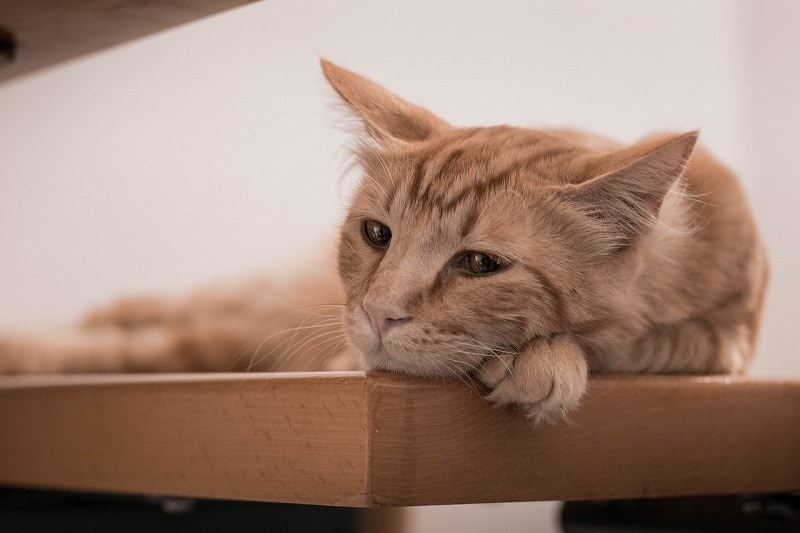
2. Changes in Appetite and Drinking
Cats’ appetites can suddenly change when they are near the end of their lives. They may slow down or stop eating altogether. You can heat up their food, mix it with some warm water, or offer their favorite treat to tempt them. A cat that is nearing the end may simply be too weak to eat. Unfortunately, the longer your cat goes without eating, the weaker they will become.
They may also show changes in drinking. Cats nearing death may stop drinking altogether, and those suffering from kidney disease will generally drink excessively and may often be found sitting by their water bowl or drinking from unusual places. It is very important to get your cat to your vet if you notice any changes in appetite or drinking. This may be a sign of their condition getting worse or another illness that could be treated or managed.
3. Changes in Grooming
If you have a cat, you know how many waking hours they dedicate to grooming themselves on a daily basis. A healthy cat will never be dirty or unkempt. A sick cat, as well as one nearing death, however, will sometimes stop grooming themselves regularly, resulting in a more disheveled appearance. As with eating, grooming is a task that can be too arduous for a weak, ill, or dying cat. Get your cat checked out by the vet who can establish if there is an underlying illness that can be treated, or in case they are suffering from a terminal illness, whether they can have any treatment to make them feel better for a bit longer, or if it’s time to make the hard decision of letting them go.
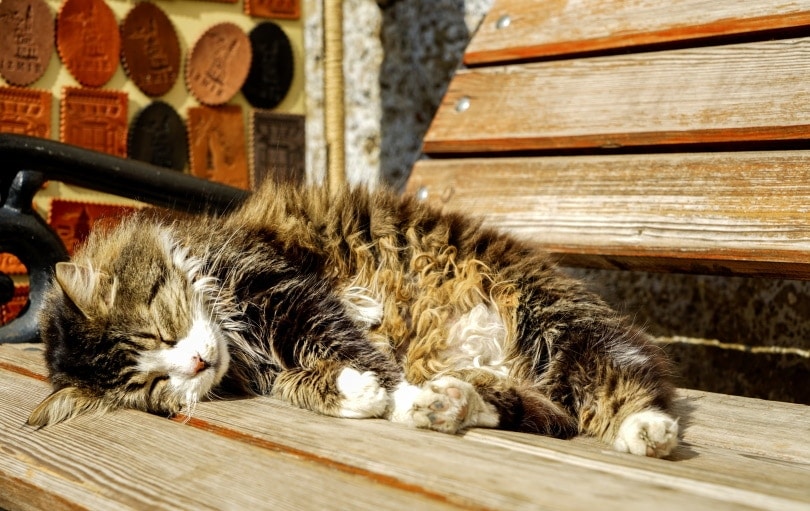
4. Changes in Toileting Habits
Cats that are nearing death may experience changes in urination and defecation. They may develop urinary or fecal incontinence, diarrhea, or constipation. They may toilet outside of their litter box and in unusual places around the home, as it may be too painful to enter the box or posture due to their condition. Of course, these changes can be present with other conditions, many of which are treatable or at least manageable.
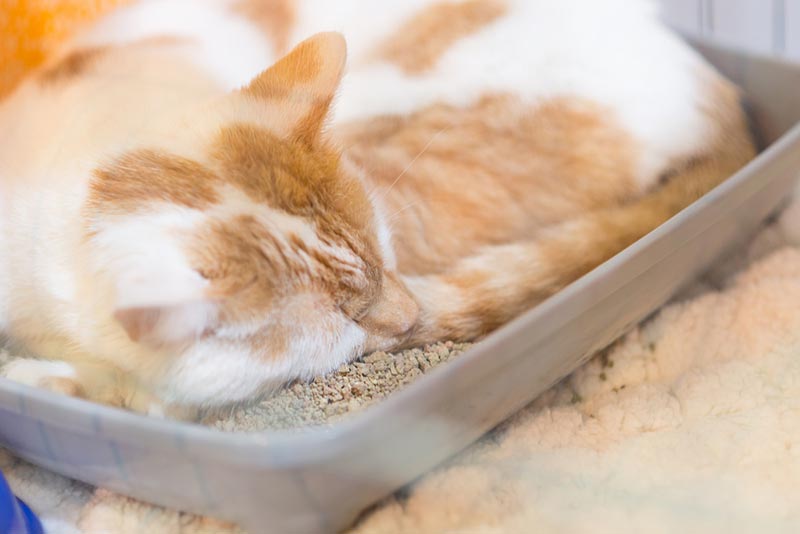
If your old or terminally ill cat is showing changes in passing urine or feces, it’s best to get advice from your vet to keep your kitty comfortable.
5. More Imminent Signs of Dying
The previously discussed signs are those you would usually see if your cat is suffering from a chronic or terminal illness monitored by your vet that may be slowly getting worse. But in some instances, cats may be showing more imminent signs of dying if their illness has quickly progressed or if they have suffered a fatal injury.
These signs are more urgent, and your cat should be seen by the vet immediately without hesitation so that they can be helped and any suffering reduced or stopped. If there is nothing that can be done, at least their passing can be made peaceful and quick.
Some of the signs your cat is dying may include collapse, vocalizations, changes in breathing, open mouth breathing, gasping for breath, blue gums, and twitching. Near the end, they may pass urine and feces. Their bodies are usually quite still and not moving much. It’s important to get them to the vet quickly so their suffering can be stopped.
Should I Let My Cat Pass At Home Naturally?
As peaceful as it may sound, dying at home can be everything but that. It can be difficult to predict when your terminally ill or old cat may pass away. It could be much longer than you think, which means they could be in quite a lot of discomfort during the process.
Cats rarely pass away suddenly or in their sleep, although it may occasionally happen. More often, though, they experience signs of distress and some of the previously mentioned signs of imminent death that won’t be pleasant for either you, your family members, or your poor kitty.
Therefore, we always recommend seeking veterinary help if your cat is dying or is very ill and going downhill rather than letting them pass at home. Being able to provide them with that final act of kindness, so their passing will be quick and peaceful, and most importantly without pain, while cuddled in your arms, will be something to cling to in the days after.
Speak to your vet about euthanasia. They can answer all of your questions. If the cat’s condition permits, they may plan a specific day or time for the injection so other family members can attend. Many vets may also offer a home visit service so your kitty can fall asleep in their own bed surrounded by a loving family.
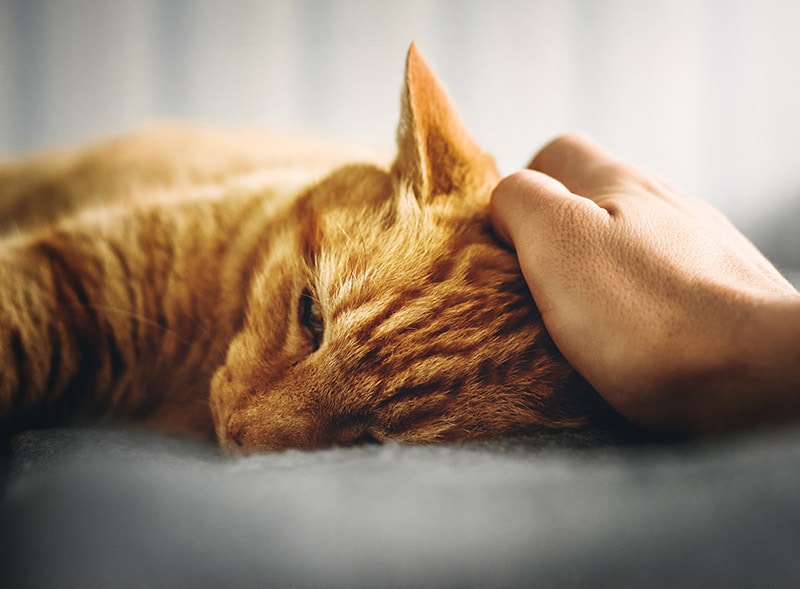
Why Do Cats Hide Before They Die?
Perhaps you’ve heard that cats like to be alone when they die. Contrary to popular belief, cats do not hide to spare their owners from sadness when their beloved pets pass away. Instead, cats often go off to hide when they are getting ready to die as an instinctual defense. As discussed, dying cats are more vulnerable to predators in the wild. As a result, they hide to prevent predators from getting an easy meal out of them.
What You Can Do To Comfort Your Dying Cat
When your cat is dying of old age or a terminal illness, there are a few things you can do to make your cat as comfortable as possible before the actual time to say goodbye comes. This is something we refer to as end-of-life care. Below are some tips you can try to comfort your dying pet, but stay in close touch with your vet in case of any changes or deterioration.
- Keep your cat warm and cozy with plenty of blankets and easy access to a sunny spot in your home.
- Offer your cat their favorite foods, unless your vet recommends otherwise. Sometimes, this will help encourage your cat to eat when they feel weak or unmotivated to do so.
- Provide easy access, for example, with a ramp, to your cat’s favorite sitting or resting spots, such as window sills and beds, or carry them there, as they might feel too weak to jump like they used to.
- Prevent young children or other pets from bothering your kitty.
- Keep a close eye on your cat’s quality of life so you can spot any signs of deterioration quickly. Your vet can give you questionnaires to help you assess your cat’s current quality of life.
- Speak to your vet regularly and plan for euthanasia as soon as your cat starts going downhill or seems to be suffering and not enjoying their everyday life.
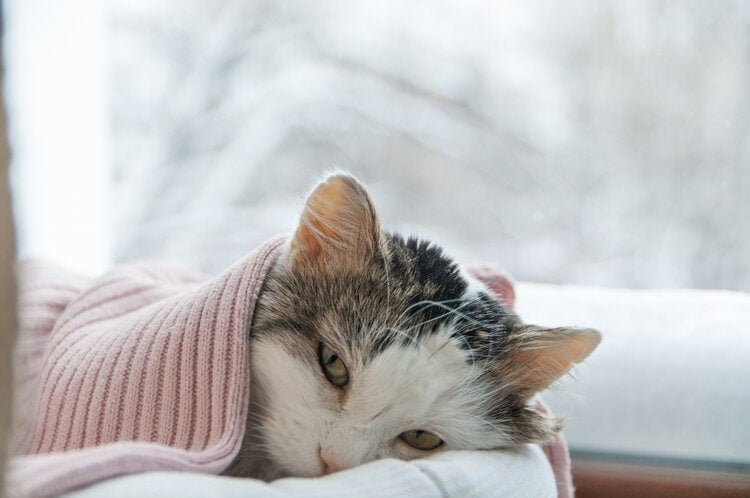
Final Thoughts
It’s always hard when a family pet dies—after all, they are an essential part of your family. However, it happens to all animals, so it helps to be prepared. When you know your cat is dying, you can do your best to comfort them through your final days together while planning for a peaceful euthanasia performed by your vet when the time comes.
See Also:
- Caring for Kittens vs. Older Cats: The Key Differences
- Can Cats Sense When Another Cat Dies? Feline Behaviour Explained
Featured Image Credit: Matthew Manuel, Unsplash




